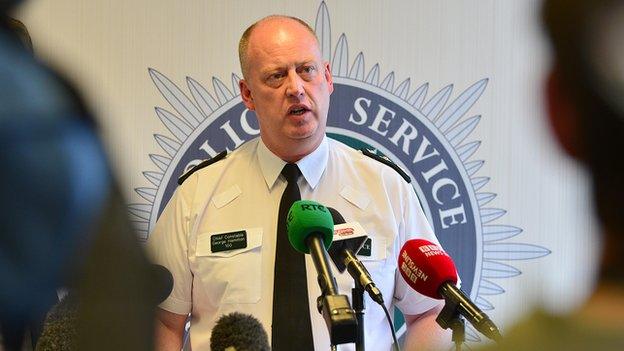IRA 'army council' still exists but has 'wholly political focus'
- Published
Northern Ireland Secretary Theresa Villiers: "The Provisional IRA of The Troubles is well beyond recall"
The IRA's ruling body, the 'army council' still exists, but has a "wholly political focus", the Northern Ireland secretary has said.
Theresa Villiers was detailing the findings of an official assessment of paramilitary activity in NI, external.
Following her statement, the DUP said its ministers who resigned from Stormont would now return to office.
They resigned when police blamed members of the IRA for killing a man in Belfast in August.
In short: Assessment of paramilitary groups in Northern Ireland
DUP leader Peter Robinson will resume his job as Northern Ireland first minister after stepping aside in September.
He said: "After all this time there shouldn't be any structures and there shouldn't be an army council, but it really is a distinction without a difference to say there's something special about the army council being involved.
"Does somebody think the people in the army council have different fingerprints than the people who are in the leadership of Sinn Fein? I don't, never have."
The report into paramilitarism in Northern Ireland was commissioned following the murder of Kevin McGuigan Sr.
The police's belief that current IRA members were involved in the killing led to a political crisis.
Sinn Féin insists that the Provisional IRA has gone away and no longer exists.
The report was compiled by the police and the security service, MI5.
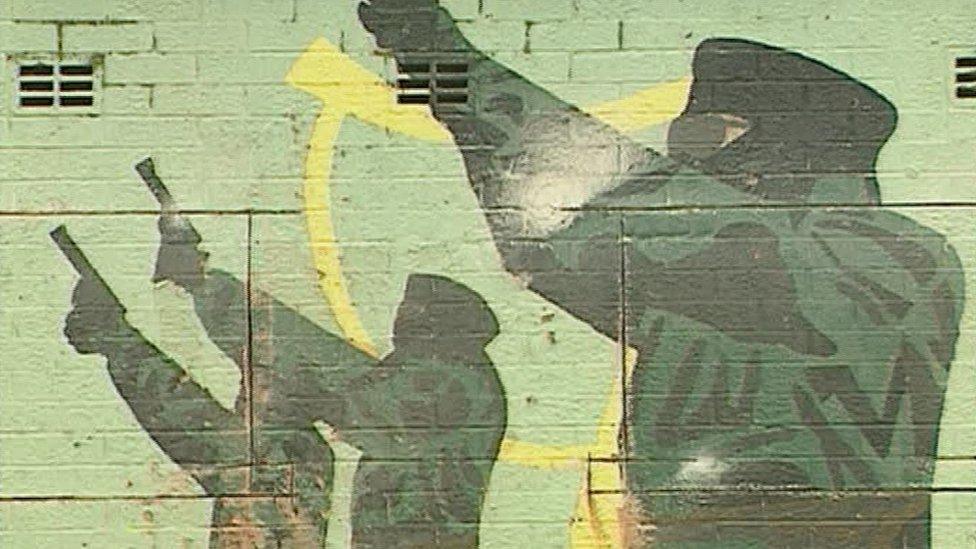
The report assessed the current status of paramilitary groups in Northern Ireland
Speaking in the House of Commons, she said the assessment showed the IRA and other main paramilitary groups that operated during the Troubles still existed.
The Northern Ireland secretary said that even if these groups wanted to return to terrorism "they would be unable to resurrect the capability demonstrated at their peak".

Key points of the report
While all the main republican and loyalist paramilitary groups from the Troubles still exist, their leaderships are, "to different degrees", committed to peaceful means
They are still organised along militaristic lines, but labels like "brigades" or "army council" make them "look more prepared for a campaign of violence than they are"
None of these groups is planning or conducting terrorist attacks, and even if they wanted, they would be "unable to resurrect the capability demonstrated at their peak"
The most serious current terrorist threat comes from dissident republicans
Individual members of paramilitary groups still represent a threat to national security and are engaged in organised crime

Ms Villiers said while the security assessment states that Provisional IRA members believe that the 'army council' oversees both the IRA and Sinn Féin with an overarching strategy, it judges this has a "wholly political focus".
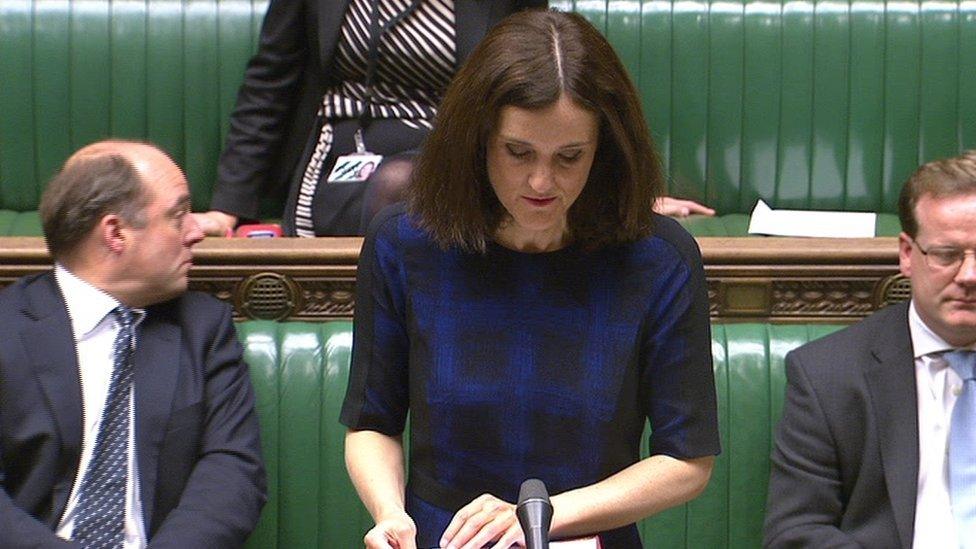
Ms Villiers said the assessment showed the IRA and other main paramilitary groups that operated during the Troubles still existed
The Northern Ireland secretary told MPs the police and MI5 assessment showed that the IRA "is not involved in targeting or conducting terrorist attacks against the state".
She added that some individual IRA members remain involved in criminal activity, such as large scale smuggling.

The story of Stormont's crisis
Stormont's political upheaval was sparked by allegations that Provisional IRA members were involved in the murder of Kevin McGuigan Sr
The row erupted after a senior Sinn Féin member was arrested as part of the inquiry into Mr McGuigan Sr's death. He was later released without charge.
Northern Ireland First Minister Peter Robinson stepped aside and all but one of his DUP ministers resigned
Finance Minister Arlene Foster is now acting first minister
Read more: How Stormont's crisis unfolded

In a statement, the DUP said: "This report largely confirms the assessment of the chief constable, in August, when he indicated that IRA structures existed and that members and former members had been involved in illegal activity though not sanctioned by the leadership who he stated were wedded to the peace process.
"We sought an up to date assessment by the PSNI and security services to inform our future decisions. That is now available to us. It confirms the Chief Constable's August statement rather than the contradictory implications that flowed from the arrest of Bobby Storey and on that basis ministers will be appointed to office later today."
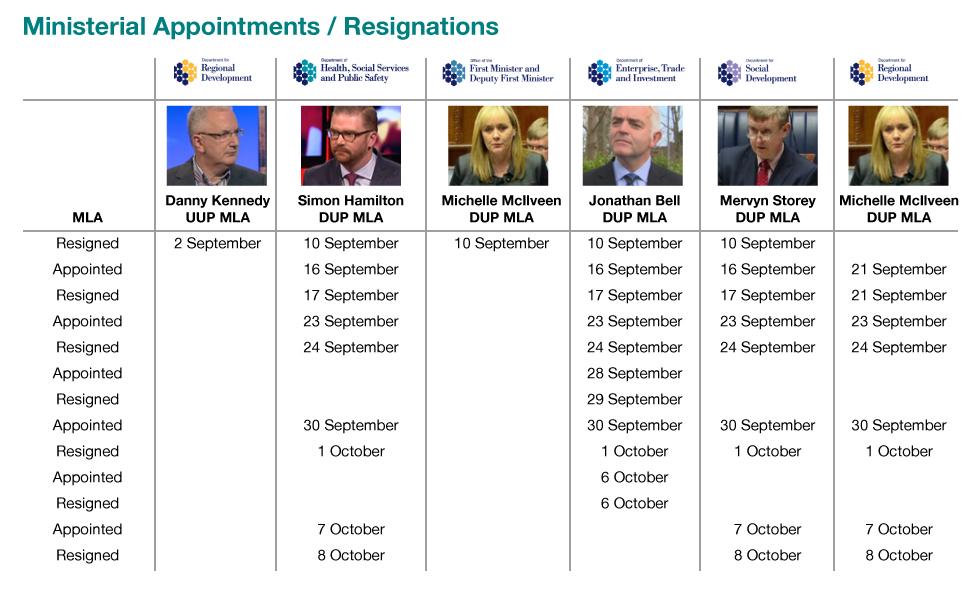
Before the DUP decided to return to office, its ministers resigned and were reappointed on numerous occasions
Mr Storey, a former IRA prisoner, is the northern chairman of Sinn Féin.
He was one of three senior republicans arrested and later released without charge in connection with the murder of Mr McGuigan.
Responding to the assessment, Northern Ireland's Deputy First Minister Martin McGuinness said Sinn Féin is now the only organisation involved in the republican struggle.
DUP leader Peter Robinson asks whether anybody thinks "the people in the army council have different fingerprints than the people who are in the leadership of Sinn Féin".
"Republicans who support the Good Friday Agreement support the political institutions, support the peace process and don't represent a threat to anyone in the community," he said.
"There are, of course, enormous and urgent issues to be dealt with around the existence of armed groups, paramilitaries and criminality.
"We all have a responsibility to deal with these issues to tackle criminality and bring paramilitarism to an end and Sinn Féin will play a full part in this important work."
In respect of loyalist paramilitaries, Ms Villiers said the assessment showed the Ulster Defence Association and the Ulster Volunteer Force had access to some weapons, despite both organisations decommissioning in 2009 and 2010.
She said members, including some senior figures were involved in organised crime.
- Published21 October 2015
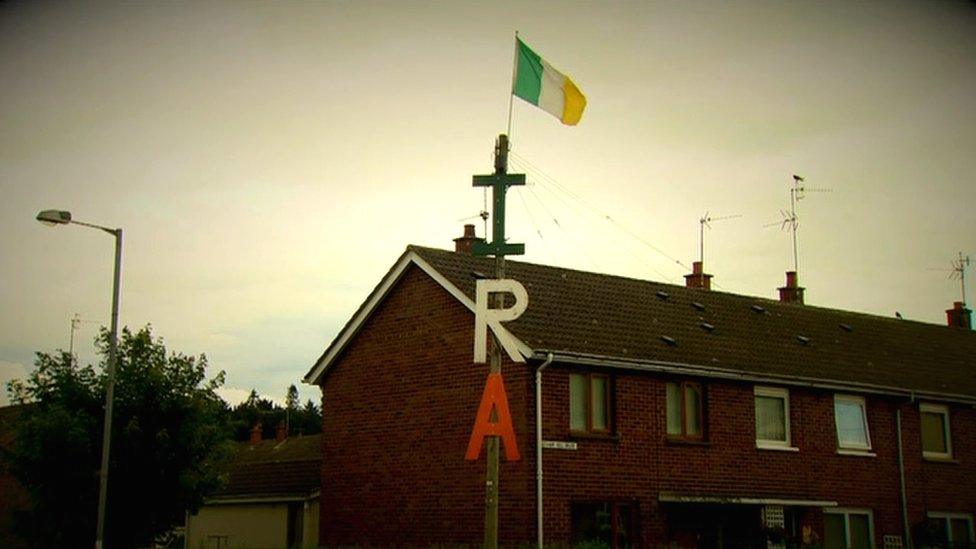
- Published20 October 2015
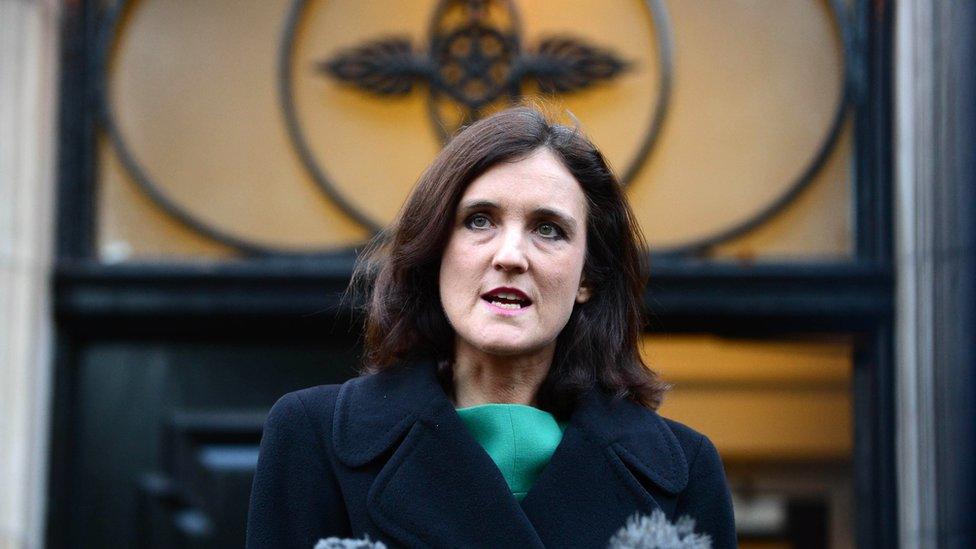
- Published20 October 2015
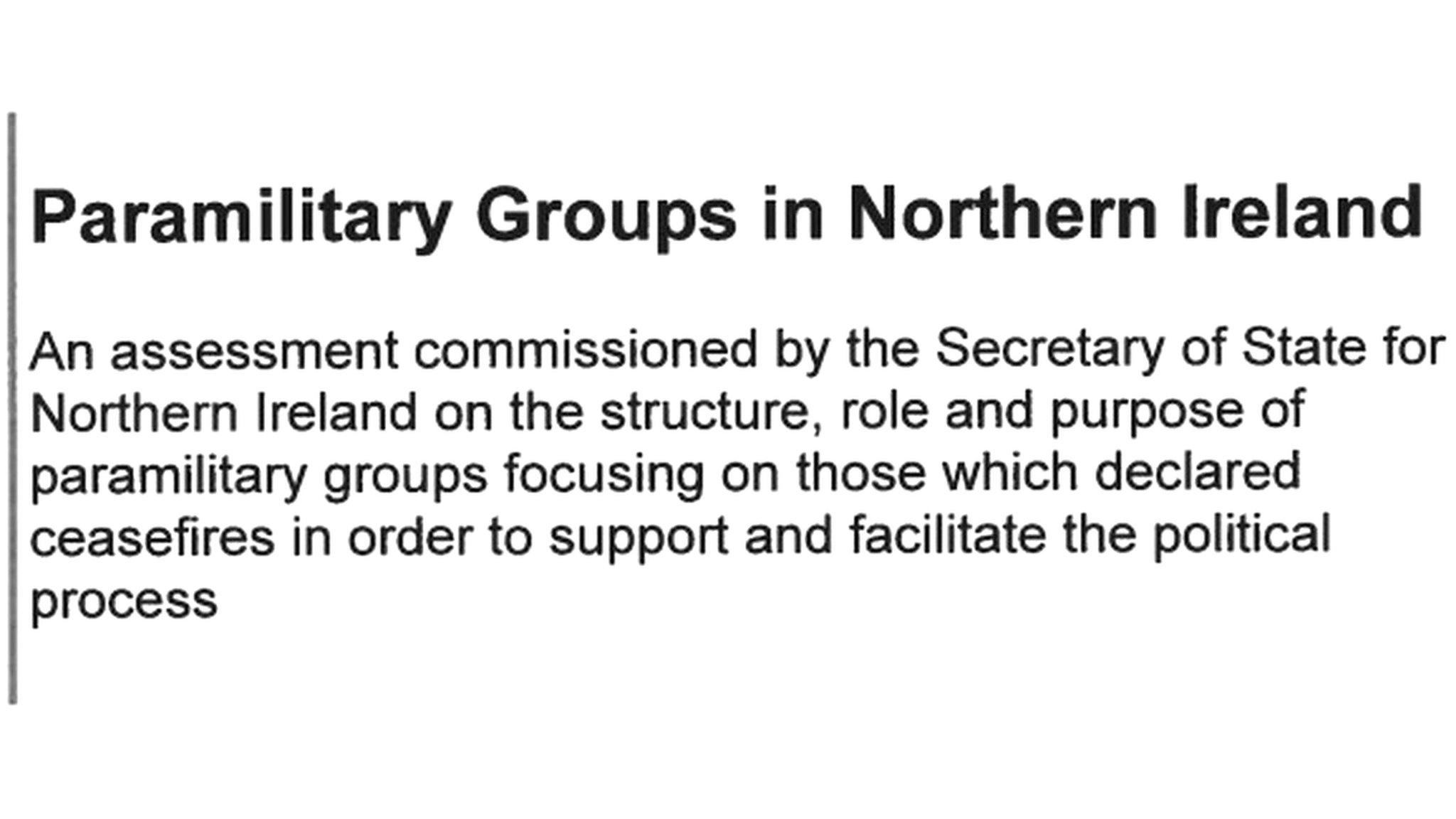
- Published20 October 2015
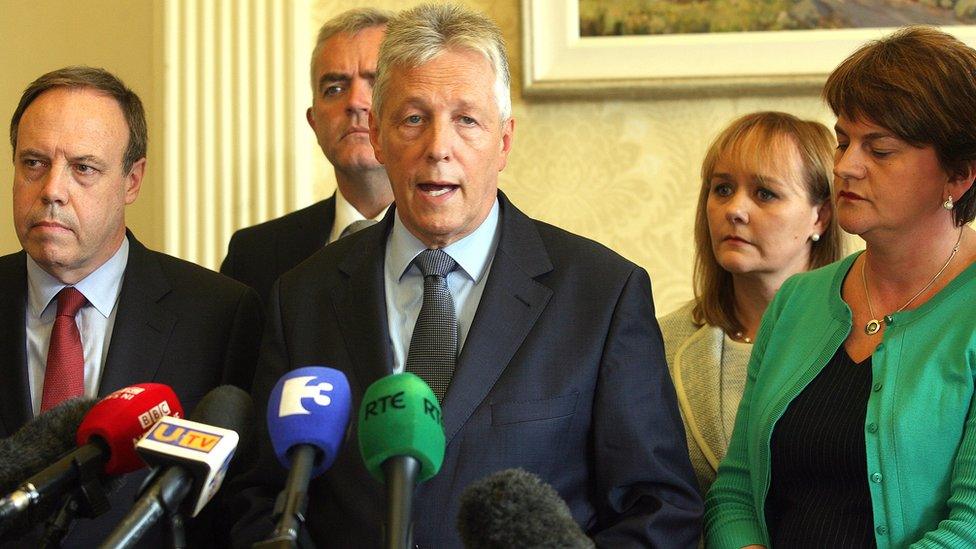
- Published21 October 2015
- Published20 October 2015
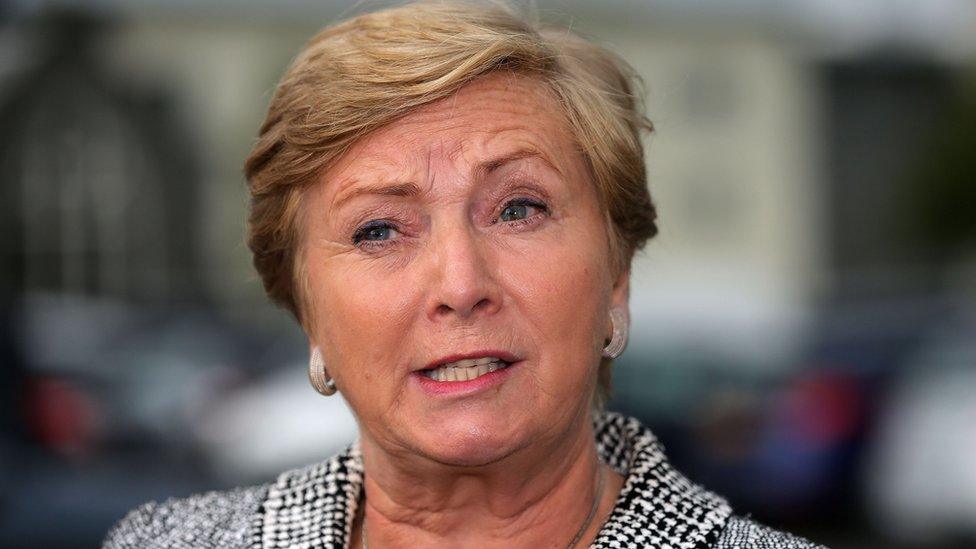
- Published20 October 2015
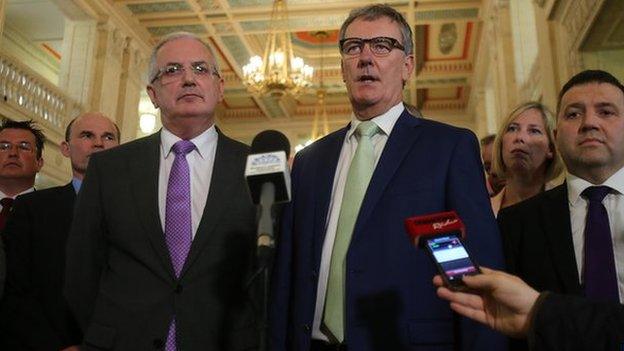
- Published13 November 2015
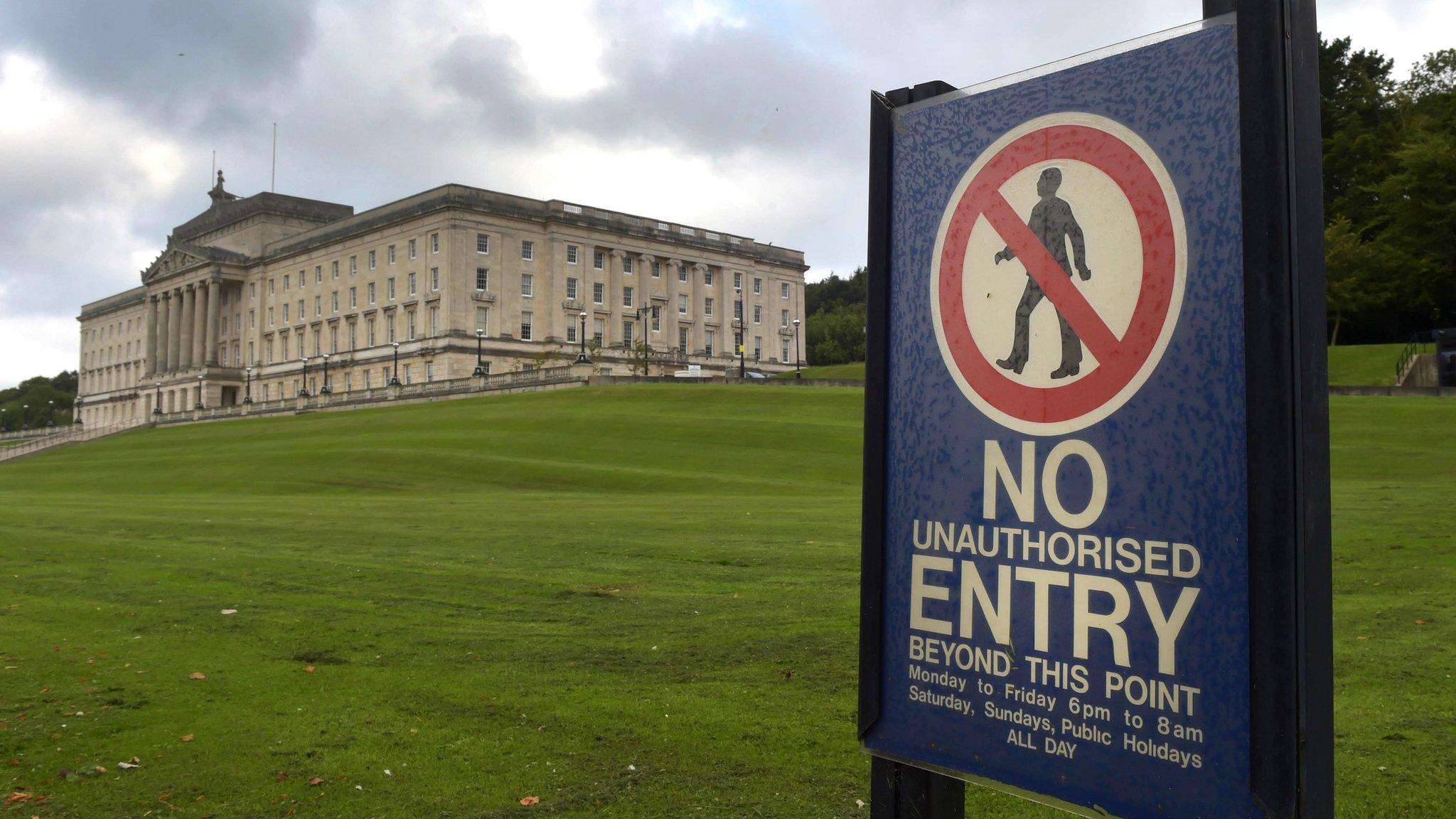
- Published22 August 2015
